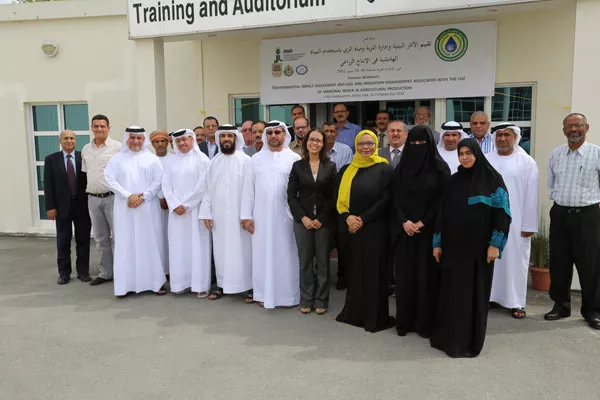Regional Participants Attend ICBA Workshop
13 سبتمبر 2012
Sixteen people from seven countries in the region (Egypt, Jordan, Oman, Palestine, Tunisia, UAE and Yemen) learnt more about the importance of environmental impact assessment (EIA) and soil and irrigation management in the use of marginal quality water (MQW) in agricultural production when they participated in a specialized workshop organized by ICBA. Held at ICBA headquarters in Dubai, the workshop from 10 to 13 September 2012 enabled participants to strengthen their knowledge about: the principles of environmental impact assessment, particularly in relation to the use of saline and treated waste water(TWW) in agriculture; methodologies to assess the impact of irrigation with marginal quality water (both saline and TWW) on soil properties (profile and groundwater); the criteria to assess MQ water used in irrigation; risk assessment of MQW; and the appropriate soil and irrigation practices to minimize the impact of the use of MQW in irrigation.
The workshop is a critical component of a major regional project, Adaptation to climate change in West Asia and North Africa (WANA) marginal environments through sustainable crop and livestock diversification, which ICBA is conducting in the seven countries plus Syria. With funding from the International Fund for Agricultural Research (IFAD), the OPEC Fund for International Development (OFID), the Arab Fund for Economic and Social Development (AFESD), and the Islamic Development Bank (IDB), the five-year project which commenced in 2010 is targeted to improve the livelihoods, resiliency to climate changes and income of poor farmers relying on marginal water and land resources in the WANA region.









